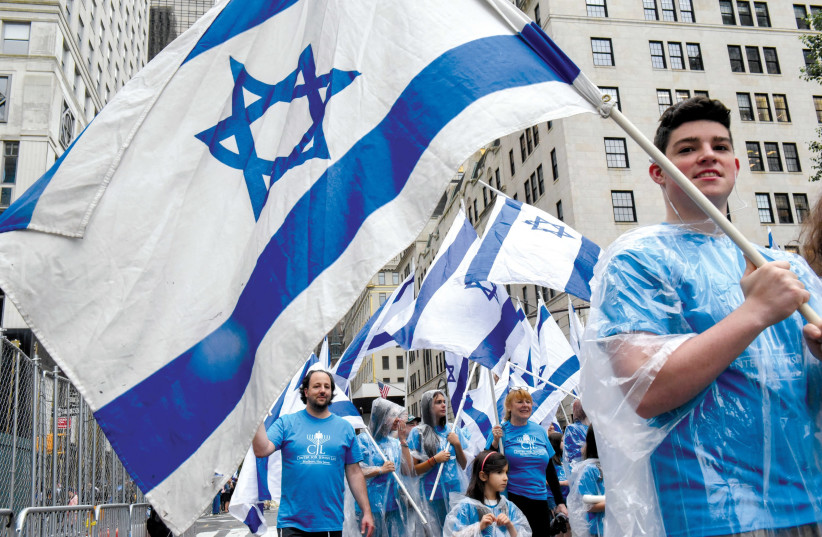In a way, coronavirus can be likened to warfare. Our front line prepares for the initial engagement, yet ultimately the war is decided by the ensuing battles and the critical decisions forced upon us. Victory is awarded not to those who strike first, but to those who survive the upcoming battles.
Since the start of the COVID-19 outbreak, people around the world have been adjusting and adapting to the new reality of this pandemic. The burden of disease is experienced not only by those infected by the virus but also by the necessary changes in daily routines and behaviors. Many regular activities have become complicated and cumbersome.
Traveling throughout Israel in the past months exemplifies a particularly unexpected change. Traffic jams are commonplace. Major highways and suburban streets alike are congested with touring Israeli families. The pandemic, abruptly halting the Israeli passion for vacationing abroad, has led to an overflow of Israelis enjoying their homeland.
This phenomenon has a trade-off. Typically, Jews around the world travel to Israel for vacations and holidays. During these seasons, it was common to hear many languages, in addition to Hebrew, on the streets of Israel, whether French on the beaches of Netanya or English in the neighborhoods of Jerusalem. Unfortunately, the pandemic circumstances have forced a physical disconnect between Diaspora Jews and Israel, with vacations and holidays spent away from the homeland.
This new reality, along with the weakening of American Jews’ affiliation with Israel, and the rise of an antisemitic atmosphere on the streets and college campuses, is challenging the connection of Diaspora Jews and the Jewish state.
This new situation has led to a generation of Israel-less Jews. Increasingly, young Jews do not see Israel as an essential component of their daily life or their Jewish identity.
The 20th century saw the remarkable establishment of the Jewish state. Now that our state is prosperous, our main challenge is maintaining the connection of the Jewish people together around a shared dream.
This can be done only by bolstering the connection between Jewish identity and Israel. Jews must know more about their legacy, internalize it and incorporate Israel into their identity. We need to connect as many Jews as possible, especially the younger generation, to the land, state, and people of Israel – as a homeland, as a national dream, and as our people’s destiny.
Recent studies have shown a strong correlation between Jewish and Zionist identities; furthermore, stronger identification with Israel and Judaism is more likely to guarantee a continued Jewish connection. In contrast, a growing negative opinion toward Israel is associated with a reduced likelihood of Jewish continuity.
Jewish identity in the 21st century must include Israel as an integral component. Israel should be a home for every Jew around the world and the inner essence of every Jewish heart and soul.
This identification with Israel can be fulfilled by traveling to Israel, making aliyah, or by maintaining a deep and active connection to Israel from a distance. Addressing the challenge of connecting young Jews from around the world to Israel is the responsibility of the communities in the Diaspora as well as the duty and obligation of the Israeli leadership, agencies, and communities.
Indeed, Israel is a young state, yet it is vibrant and strong. It is time we in Israel harness the best of our efforts and our start-up nature to build a sustainable connection with our brothers and sisters around the world.
With that said, to succeed, Israeli leadership, agencies, and communities must work in partnership with the Jewish communities and leadership in the Diaspora. Together, we must develop new ideas, content, and paths to bring Israel back to the spotlight of Jewish identity.
This challenge is exacerbated by the COVID-19 pandemic, yet it is achievable. The urgency for addressing the connection has grown during the pandemic, as access to international travel and visits to Israel have been limited.
Our role In the World Zionist Organization is to continue Herzl’s vision, harnessing forces, resources and endless efforts to connect Jewish communities around the world to the State of Israel, our land of shared hopes and dreams.
Through joint effort, we will restore our common Jewish identity. Together, we can shine a light through the darkness of this pandemic, not merely to see the light at the end of the tunnel, but to combine our ancient and historic past with our common purpose to do good thereby enhancing the light we shine throughout the tunnel and connecting the link between Jewish people around the world.
“Im tirtzu, ein zo agada” – “If you will it, it is no dream.”
The writer is head of the Diaspora Department, World Zionist Organization.
![‘WHAT SEPARATES American Jews and Israel is, well, everything... [yet] we ought to celebrate those differences, not bemoan them.’ ‘WHAT SEPARATES American Jews and Israel is, well, everything... [yet] we ought to celebrate those differences, not bemoan them.’ (photo credit: Wikimedia Commons)](https://images.jpost.com/image/upload/q_auto/c_fill,g_faces:center,h_537,w_822/449576)
